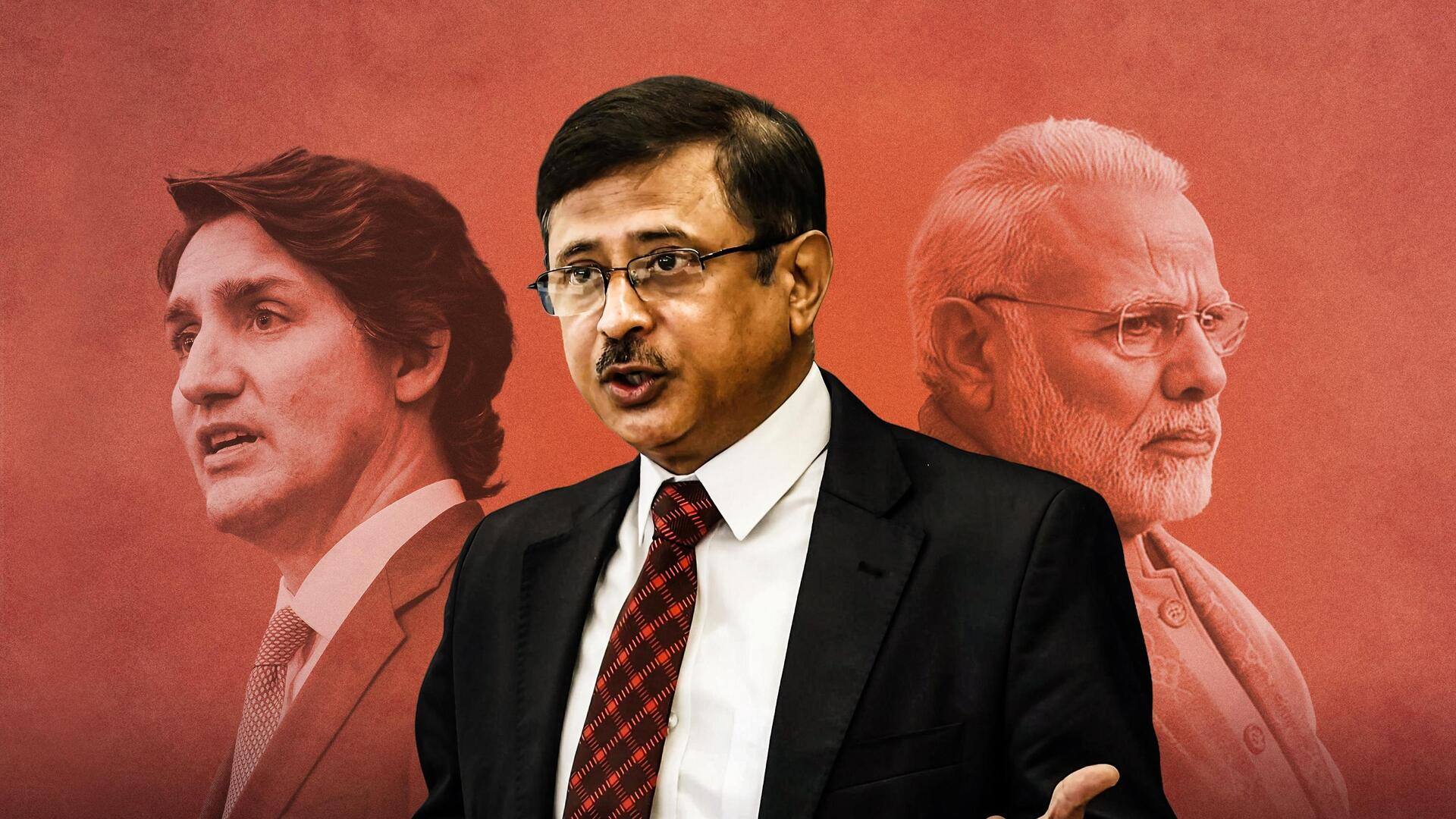
India didn't kill Nijjar, relations with Canada better now: Envoy
What's the story
Indian High Commissioner to Canada, Sanjay Kumar Verma, firmly denied India's involvement in the killing of Khalistani terrorist Hardeep Singh Nijjar. However, he said Indo-Canadian relations were better now than two months ago. Speaking to CTV News, he also expressed disappointment over Ottawa accusing New Delhi of Nijjar's killing before the investigation is complete. Relations between Canada and India soured in September after Canadian Prime Minister Justin Trudeau's allegations of "potential" Indian government agents' involvement in Nijjar's death in June.
Context
Why does this story matter?
The Indo-Canadian bilateral ties nosedived in September, leading to diplomatic expulsions from both sides and the suspension of certain visa services. However, India resumed e-visa services for Canadians on Wednesday after a two-month pause. Earlier, Prime Minister Narendra Modi's government also resumed visa services for entry, business, medical, and conferences in October. Although the relations between India and Canada have relatively stabilized, Verma pointed out that the key issue was some people were using Canadian soil to challenge India's sovereignty.
Details
Convicted India even before investigation concluded: Verma
Verma questioned Canada's approach to Nijjar's death investigation, saying, "Even without an investigation being concluded, India was convicted. Is that the rule of law?" He said India was open to looking into any relevant information from Canada but avoided using the term "cooperate" as it felt "humiliating." The high commissioner also highlighted the Khalistani issue, which is India's primary concern with Canada. "Some Canadian citizens are using Canadian soil to launch attacks on (India's) sovereignty and territorial integrity," he said.
Insights
Treat Khalistanis as terrorists, not separatists: High commissioner
According to Verma, India has also provided "documentation" to Canada through a mutually agreed channel, proving that "Sikh separatists" residing in Canada were involved in criminal activities in both countries. He further mentioned red corner notices issued through Interpol, including one for Nijjar. Verma emphasized that pro-Khalistani individuals are being treated as terrorists rather than separatists as they raise funds in Canada and send them to gangs in India for illegal activities like drug trafficking, arms smuggling, and human trafficking.
Facts
Expulsion of diplomats 'emotional element,' ties better now: Verma
On a positive note, Verma reportedly shared that the resumption of e-visa services for Canadians comes after an improvement in the security situation in Canada. He also mentioned that both governments are engaged in constructive conversations, indicating their "relationship is better than it was two months ago." He said both sides were working toward "more dialogue" and potential next steps. Verma also revealed that "the emotional element was a factor" in India's decision to expel a Canadian diplomat in September.
India-Canada ties
Strained relations between India and Canada
In September, Trudeau accused certain Indian government agents of killing Nijjar at a Surrey gurdwara in June and expelled a senior Indian diplomat. In response, India also expelled a Canadian diplomat, citing parity as the reason. This led to heightened tensions between India and Canada. India has roundly rejected any involvement in the killing, calling Trudeau's comments "absurd" and politically motivated. Subsequently, India had also suspended certain visa services while both countries issued adverse travel advisories for their citizens.